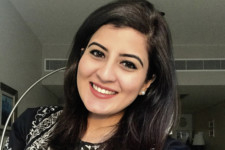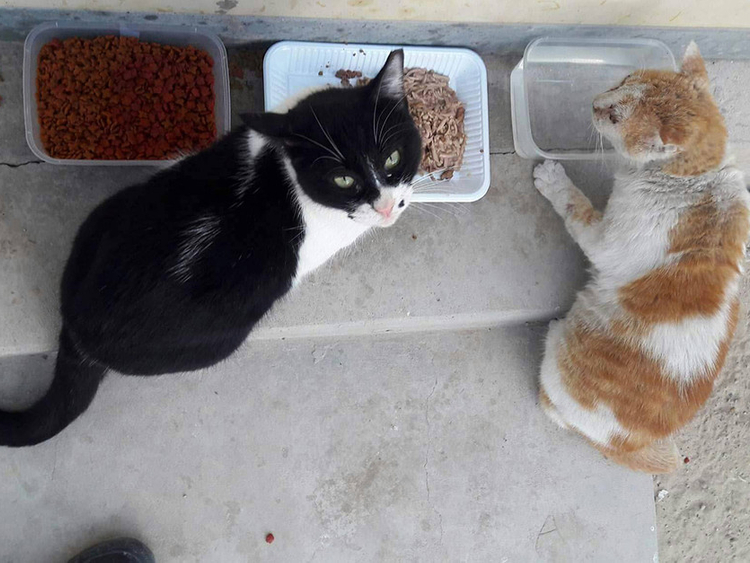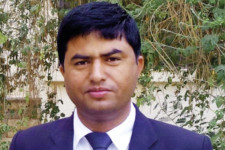
Did you know that giving to others makes us happy, even more than spending on ourselves?
This was proven in a study published by the UK-based Journal of Social Psychology. Additionally, a study published by the US-based University of California shows that when one person behaves generously, it inspires observers to behave generously later, toward different people.
Such is the case of Ayesha Sohail, a teacher based in Dubai. She has been doing charity work for 10 years. When she was 18 years old, she came across a village in Pakistan where the residents didn’t have access to clean water and had to walk several kilometres to collect some for their families. She collected some money among her friends and sponsored to build a well in the village.
From there on, there was no turning back and through her actions, Sohail wanted to encourage others to be generous, too. Around five years ago, she decided to take things up a notch and started a social group called UAE Fusion Socialities. She has brought together 8,000 women living in the UAE, but who are originally from Pakistan, India, Sri Lanka, Bangladesh and some Arab countries, in a space where they can share their issues. They try to help each other financially when needed, organise meet ups to do charity work every month, cater to the needs of low-income families during Ramadan and provide groceries to some needy families through the year.
She told Gulf News: “The members of the group are so down to earth. They are ready to help anyone, irrespective of their nationality or religion. There have been cases where some people don’t have electricity at home because they are unable to pay the bills. We have helped them. And the most memorable instant is when a woman was in labour and had no family around, some members went to her place and helped out.”
For Eid, the group made gift packs containing an outfit, shoes, chocolates and a telephone card and distributed them among watchmen of residential buildings and grocery delivery men.
Sohail said: “They work so hard but cannot go shopping, as some of them have long shifts. So, we thought of doing something special and handed out 180 Eid gift packs.”
Her dream is now to work on her initiative on a larger scale. She hopes to sponsor two children who have never been to school.
She added: “I am still not satisfied and want to do more.”
In a study conducted in 2006 by the US-based National Institutes of Health, it was found that when people give to charities, it activates regions of the brain associated with pleasure, social connection and trust. Scientists also believe that altruistic behaviour releases endorphins in the brain, producing the positive feelings.
Around three years ago, Sarah Rizvi, an account manager in an advertising firm based in Dubai, had come up with ‘Pending Meal’, a community initiative that encouraged people to provide food to those who were less fortunate. Today, she is working on a personal level to provide meals to workers within her community. Through the year, Rizvi prepares meals for the workers in her building.
She said: “The idea was for people to start from somewhere. There are a lot of low-income workers in the country, and not just labourers, but food court cleaners, building watchmen and many others. If you’re doing something good and not expecting anything return, it shows you that being compassionate is so important. My friends, family and colleagues all help out in this cause and if we can pitch in money and feed so many people, it is a big deal.”
During the month of Ramadan, her group provided 2,500 meals to workers in Dubai. “These people would find it helpful to not have to pay for one meal,” Rizvi added.
Another individual who is making a difference through his act of kindness is Dr Rommel Sergio, an associate professor at the Canadian University in Dubai. With a specialisation in psychology and human resources management, Dr Sergio has been providing free counselling sessions to Overseas Filipino Workers (OFW) with the help of the Philippine Consulate in Dubai.
He said: “I believe in the concept of training them to fish, rather than providing them with the fish. It started with me providing counselling to the counsellors at the consulate. They cater to 50 to 100 people every month, but did not have any formal training or a psychology background. I have been training them for over a year and the programme is smooth sailing now.”
The second group of people he councils is those who walk in to the consulate and require psychological expertise. So, the consulate elevates their cases to Dr Sergio and his colleagues, who are also professors in a similar field.
He said: “There are cases that require a higher form of intervention, so those come to us. Some of these could include physical abuse, abusive employers or people who experienced episodes of suicical thoughts. We have a space in the consulate where we conduct psychological tests and intensive counselling sessions. All of these services are offered for free.”
Melchor Oribiana, a customer service team leader with an airline in Dubai, has known Dr Sergio for 10 years. He describes him as someone who has an “altruistic way of dealing with people” and gives him credit for inspiring him to pursue a masters degree.
He said: “I always ask him for help or advice, whenever I have a professional or personal problem. I have never encountered a time when he has let me down, even if he is really busy.”
Similar to his case, another individual offering free services is Imran Khan, a lawyer based in Dubai. Having graduated from law school in India in 2004, he decided to offer free legal counselling to individuals at a court house. People would come in to ask for help and if they couldn’t afford to pay the fees, he would not ask for it.
He said: “After moving to the UAE, I started working for a law firm that takes pro bono cases, meaning they don’t charge clients who cannot afford to pay. These people would come for various forms of legal advice, mostly for civil and labour cases.”
He hopes to continue working such cases in the future, too.
Fawaz Kanaan, a Dubai resident, wanted to shift gears and instead of helping people, he decided to help animals. It started with him feeding three cats around his building in the Deira area. Today, through his group Save Dubai’s Stray Cats, he covers six areas around the emirate and is feeding 200 stray cats.
He said: “We see these cats suffering in the heat and it isn’t easy for them to find food or water. So, they need our help more than others.”
On a daily basis, he heads out to different spots and puts food and water for the cats. Additionally, he is now working with two veterinary clinics in Dubai for a trap, neuter and release programme to minimise the number of stray cats on the steets.
He said: “These clinics also help us when we find injured cats. Currently, we have 2,300 members in the group and at least 300 of them are very active and help out.”
Another individual who has decided to focus on animals is Diane Nobles-Eldakak, an operations manager based in Abu Dhabi. For the past 10 years, she has been feeding stray cats in three communities around the capital.
She said: “I started feeding the ones around my building, but then it became a habit. My husband keeps asking me how much money I spend on their food, but I’m afraid to tell him!”
On a weekly basis, Nobles-Eldakak confessed to spending Dh400 on just food. That’s around Dh20,000 a year and Dh200,000 in the decade that she has been feeding the cats.
She said: “This is something that you cannot stop doing once you start. It’s so hot, especially in the summer, I don’t know how people can’t give the cats at least some water.”















